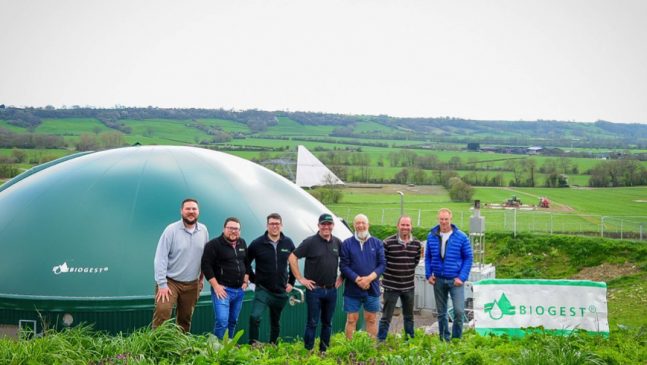This month Powerful Thinking’s Chair, Tim Benson, looks at the huge potential of recycling waste products into electricity and how this process could be a solution to help festivals and events to meet their targets around reducing CO2 emissions from power provision. From leftover oranges in Seville, Spain, generating electricity for the city’s water recycling plant – to cooking oil from the BBC canteen being recycled into biodiesel to power outdoor broadcasts – Tim recounts the success stories and considerations in turning waste to power – and looks at how Glastonbury Festival have led the way by building a 125kW anaerobic digestion plant on their site, which produces energy from cow manure and exports it back into the grid. Read the blog below:
“I recently came across an article in the Guardian (23rd February 2021) that described how Seville was piloting a scheme to turn the city’s leftover oranges into electricity. It described how the municipal water company, Emasesa, was using the 5.7 million kgs of waste fruit from its 48,000 orange trees to generate electricity for one of the city’s water recycling plants. Their head of environmental, Benigno López, reported that in trials 1,000kg of oranges collected from the pavements could produce 50kWh of energy, enough to provide electricity to five homes for one day. He went on to say that, if all the city’s unwanted oranges were recycled, then sufficient energy could be exported back into the grid to power 73,000 homes.
The recycling of waste products into electricity is now commonplace and hardly headline grabbing news in itself. In-vessel anaerobic digestion plants, whereby organic materials such as food and animal waste products are broken down into biogas (methane) to fuel electricity generating turbines, are ubiquitous and often used to subsidise conventional energy generation at both commercial and domestic levels. Indeed, the EU is a world leader in biogas electricity production, with an estimated 10.4GW of electricity produced through anaerobic digestion in 2015 alone. This process further has the added bonus of producing fertiliser as a byproduct.
Waste materials can also be recycled into liquids. In 2013, I was involved in a project for BBC Radio 5Live, where used cooking oil from the BBC canteen was recycled into biodiesel to power broadcast outboard for their Energy Day live OB. More recently, Napier University has pioneered a process that converts waste products from the whisky production process into a biofuel for vehicles. Such was its perceived potential, that a new business was formed, namely Celtic Renewables, that aims to scale this production of biobutanol to commercial levels for use in vehicles in the Scottish homelands.
You won’t be surprised to learn then that Neste, the leading global supplier of second-generation biofuels, uses waste and residue products as the base components in its HVO renewable diesel; these include used cooking oils, animal fats from food industry waste, vegetable oil processing residues, fish fats and technical corn oils (a residue from ethanol production).
As festivals are urged, and rightly so, to adopt circular economy models, I can’t help but think some are missing a trick here – why not use organic waste as part of their energy mix?
In 2019, Worthy Farm, home to Glastonbury Festival, commissioned Biogest to build a 125kW anaerobic digestion plant on their site, which produces energy from cow manure and exports this back into the grid. Plans for using this biomass solution to supplement the festival’s show power were already being considered, before the untimely intervention of Coronavirus. Yet for established festivals that have long term relationships with their landowners, these kinds of projects could benefit both parties through a jointly funded venture. And of course, less food waste to landfill will reduce the volume of methane emitted into the atmosphere, which can only be a good thing as it has five times the warming potential of CO2e!”
This guest blog originally appeared in our March 2021 Vision: 2025 newsletter. Sign up to receive monthly event sustainability news, case studies and guest blogs direct to your inbox www.vision2025.org.uk

